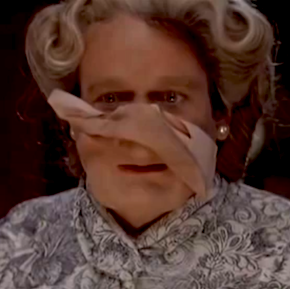
I recently discovered Bad Suns, an up-and-coming band from California, whose song “Salt” seems to be played almost daily during my commute. Listen to what it says: “Look in the mirror and tell me/ What it is like to be free/ How do I grasp reality/ When I don’t have an identity?/ Who, who can I look to ’cause I’m not like you, you?/ And I don’t believe in the truth, truth/ Because all of my life’s built on lies.”
When I hear these lyrics, I can’t help but think of what Paul Zahl recently says in PZ’s Podcast episode #162 called “Rain Dance”. Simple yet profound, it is something all of us desperately need to hear in the messiness of everyday life:
You’ve got to first really deal with what actually is…. Deal with reality. Dealing with what is is really doing business with God. Because no one can possibly move forward dealing with reality without having a proper sense of who you are.
What we all need, he tells us, is a reality check.
But don’t most of us feel like screaming back, “How?!” Underneath the masks we put on each time we wake up, is there not that sense of anxiety that tells us that reality around us, like our own identities, has eluded our grasp? This is why the song Salt is so grippingly real. Each of us, at one point or another, are looking in the mirror, singing, “How do I grasp reality when I don’t have an identity?” With a plethora of options before us, we all pursue meaning, some sense of control and order, some way to remake ourselves into who we’d like to be. But the—er, reality—is, as “Salt” points out, that in our identity-lessness we have not grasped reality.
In light of our ephemerality, how might we get a grip, so to speak? Paul Zahl has told us that reality is really “doing business with God.” And here John Calvin helps us as well: “Again, it is certain that man never achieves a clear knowledge of himself unless he has first looked upon God’s face, and then descends from contemplating him to scrutinize himself.” When we meet with God, in other words, we also meet ourselves. At the beginning of Book 2 of his Institutes, Calvin speaks further on the subject:
But knowledge of ourselves lies first in considering what we were given at creation and how generously God continues his favor toward us, in order to know how great our natural excellence would be if only it had remained unblemished; yet at the same time to bear in mind that there is in us nothing of our own, but that we hold on sufferance whatever God has bestowed upon us. Hence we are ever dependent on him. Secondly, to call to mind our miserable condition after Adam’s fall; the awareness of which, when all our boasting and self-assurance are laid low, should truly humble us and overwhelm us with shame.
Calvin thus points us toward something that is fundamental about what it means to be human: to be creatures who have received everything from their Creator. To suppose otherwise would be to live in a fantasy, which we all do in some form or another. It is precisely the revelation of our creatureliness that exposes the fantasy, the place where both reality and our identities elude us, for what it truly is: a sham. This loss of perspective—this sin—is recognizable in our endless attempts to go it on our own, to live on our own steam. Yet in doing so, I wonder if we have lost sight, not only of God, but also of ourselves. Fortunately, arriving at the precipice of hopelessness, where we ask, “But how do I grasp reality?”, often seems to put us in a position where we “come to our senses,” where we are open to the reality check we ultimately need: to hear the message of grace, one which speaks of God as Giver and we as recipients of his gifts.

COMMENTS
Leave a Reply












